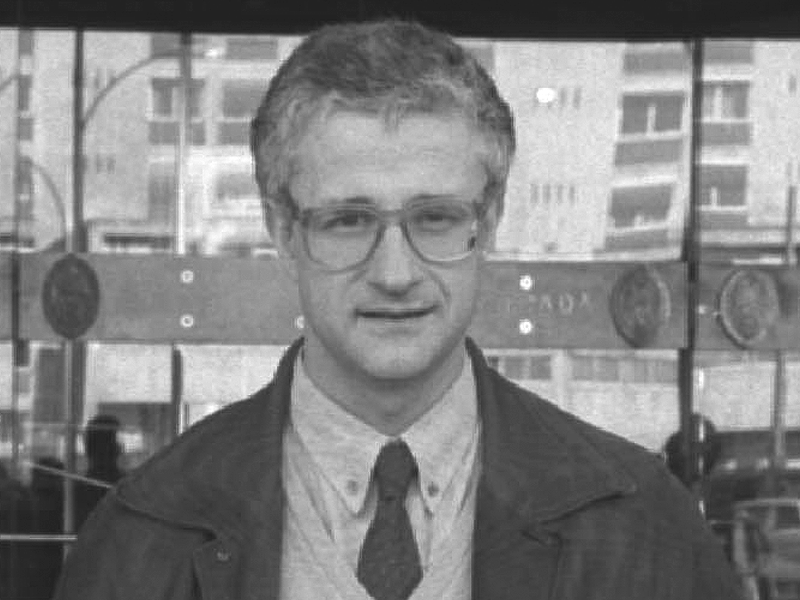History of the School
MORE THAN 60 YEARS TRAINING ENGINEERS
In 1961, the University of Navarra created the technical school of Industrial Engineers in the city of San Sebastian, thus acceding to the demands of the Provincial Council of Gipuzkoa and increasing with a School of Industrial Engineers the ever-growing academic programs of the University of Navarra. This is its history.
-
1961
Inauguration of the first course
At noon on October 16, 1961, the solemn act of inauguration of the activities of the technical school of Engineers took place in the Throne Hall of the Provincial Council of Gipuzkoa, with the presence of the President of the University of Navarra, Mr. José Mª Albareda, the President of the Gipuzkoa Provincial Council, Vicente Asuero, the Mayor of San Sebastián, Nicolás Lasarte, the Vicar General of the Diocese, Mr. José Cruz Sudupe, the first academic staff of the School and other authorities. The following day, October 17, 1961, classes began.
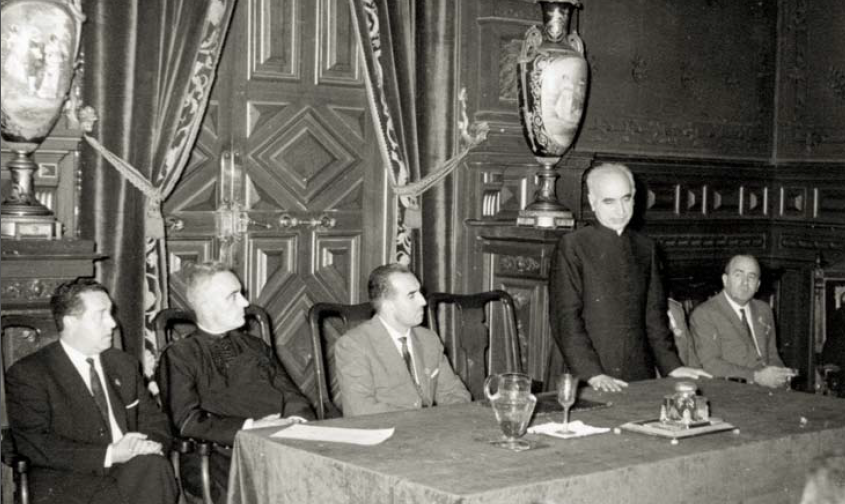
-
1962
Officiality of education
During this year, the official status of the courses taught by the University of Navarra was recognized by Decree 2294/1962, of September 8, 2002, of the Ministry of National Education , which recognizes the civil effects of the courses taught by the University of Navarra for the purposes set forth in the Agreement signed between the Holy See and the Spanish State on April 5, 1962.
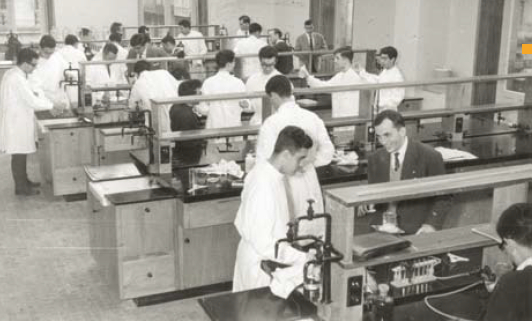
-
1963
III IESE Assembly
First event between the School and IESE on the occasion of the III Assembly of the Institute of Higher Business Studies in San Sebastian, which opens the history of collaboration between the two centers of the University of Navarra. IESE brings together in Donostia the executives who have followed its senior management programs with its professors and scientific staff , in order to channel the continuity of the ongoing training work it provides. Since then, a large number of students have gone on to complete their professional careers as managers at IESE, following their engineering education in San Sebastian. The Gipuzkoa Technical Research Center (CIT) was also created, with Patxi Tegerizo as its first director . The aim is to create an industrial and research laboratory at the service of Gipuzkoa's industry, which carries out its activities in perfect symbiosis with the school, as it also collaborates in the teaching of the fourth and fifth years.
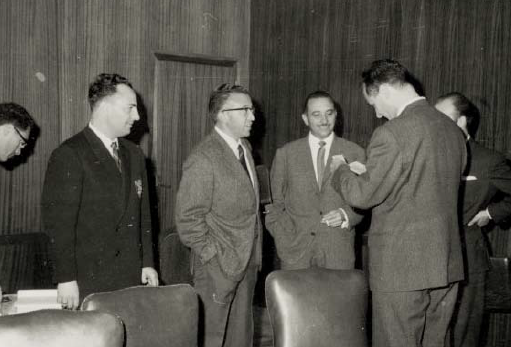
-
1964
New Study program
The duration of Industrial Engineering is reduced to five years, eliminating the two years of Selective and Initiation, and also incorporates the specialisations of Mechanics and Chemical-Metallurgy into Industrial Engineering.
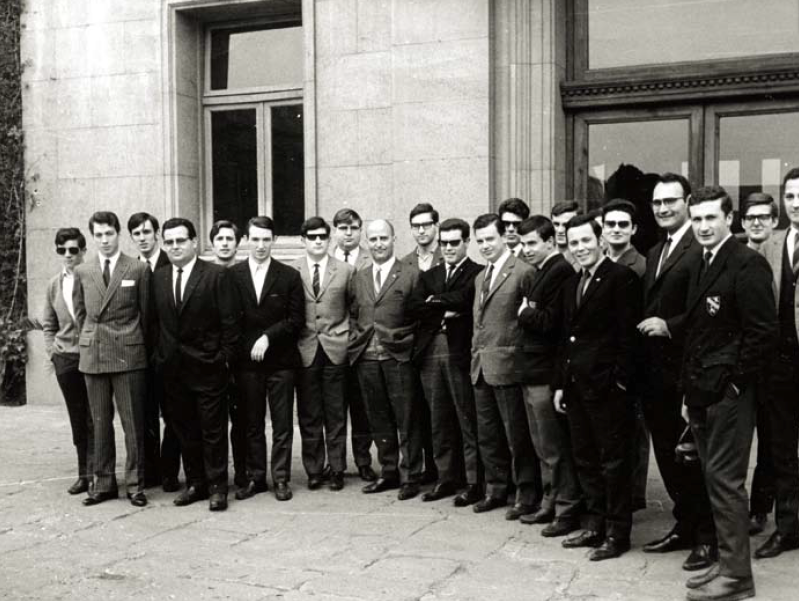
-
1967
1st promotion of Industrial Engineers
The first graduating class of Industrial Engineers from our School, made up of twelve graduates, concludes their studies. It is the pioneer class, which began and finished their studies in the half-remodelled Urdaneta building.
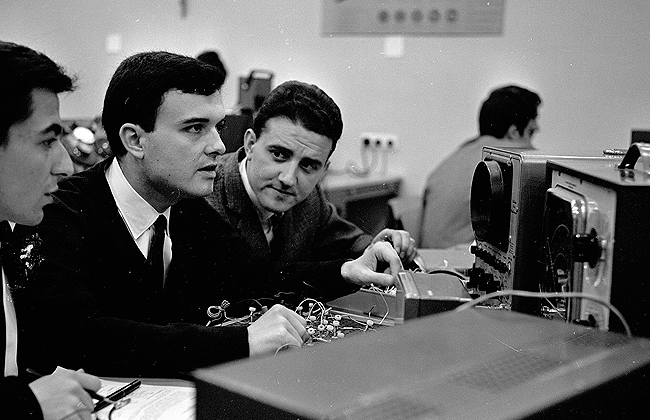
-
1969
Graduation 1st female engineer
The School's first female Industrial Engineer, María Belén Mongelos, graduates. Together with 31 other classmates, they constitute the III Promotion of the School.
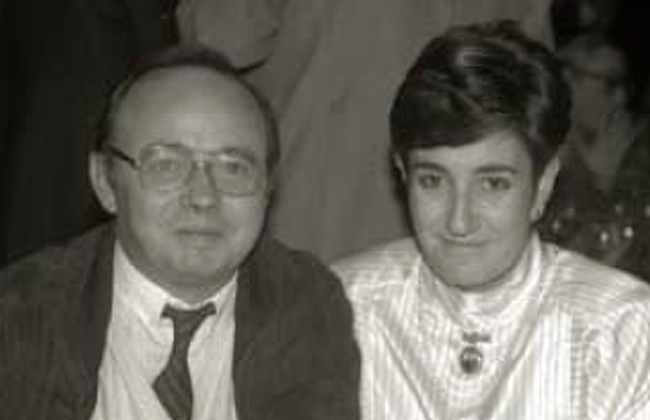
-
1970
1st promotion of Physical Sciences
With nine students, it graduates in 1970. This year the specialties of Mechanics, Metallurgy, Electricity and Industrial Organization were introduced for Industrial Engineers.
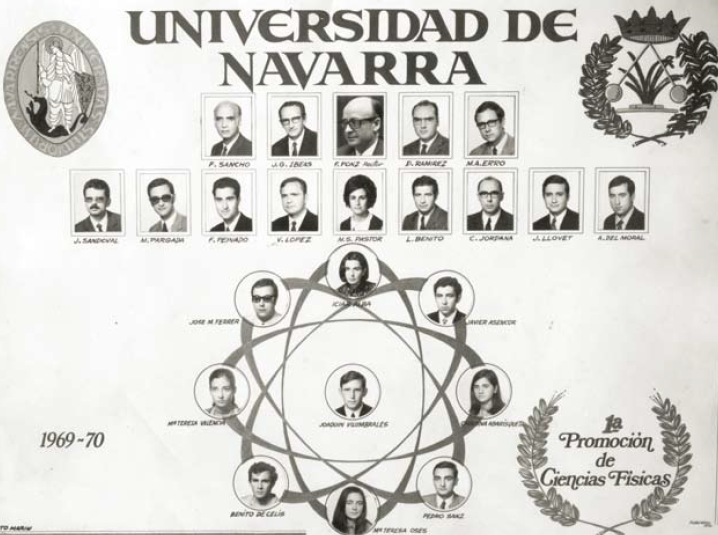
-
1974
New computer
A new "electronic brain" is installed in the school, the HP 2100s computer, which can be connected for the first time to work as a remote terminal.
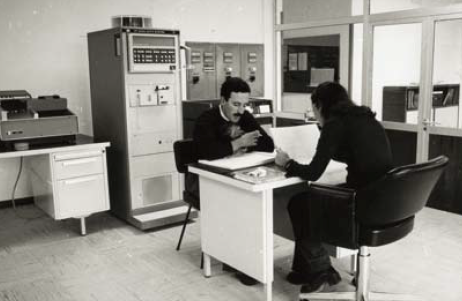
-
1982
The Center for Technical Studies and Research (Ceit) is born.
CeitThe School, a center of scientific and technical excellence, promotes innovation in industry through the promotion of research projects for companies seeking to develop new products and services. Its first General director is also director of the School, José Mª Bastero, with Manuel Fuentes as the Scientific director .
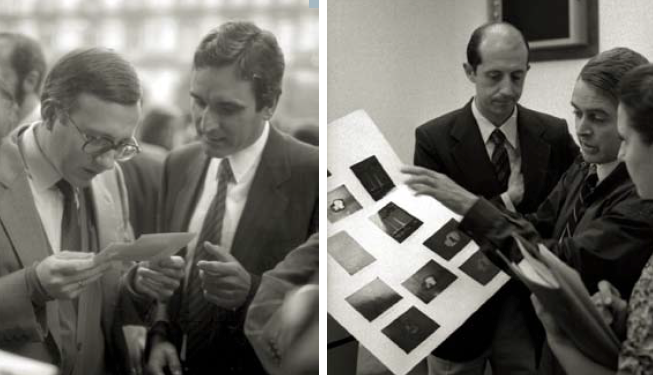
-
1986
Silver Jubilee
Tecnun celebrates its silver jubilee in 1986 after 25 years of technical school of Industrial Engineers in San Sebastian. Three are the continuous witnesses of this quarter century of life and receive the first silver medals of the University of Navarra. They are administrative assistant Conchita Elormendi and professors Patxi Tegerizo and José Casares. 1,116 graduates, 36 doctors, three of whom were already university professors, and a total of 987 students studying engineering in its classrooms.
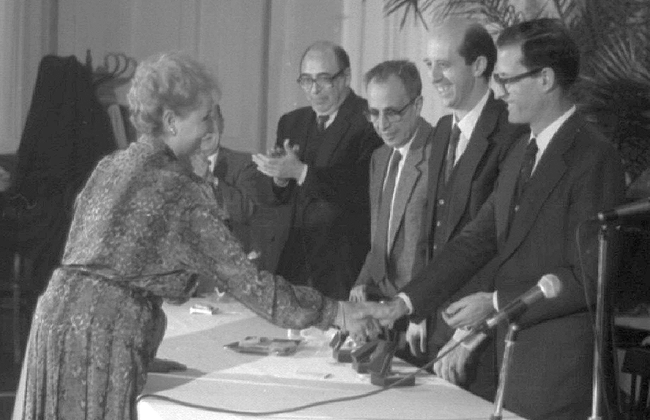
-
1988
Origins of the ERASMUS programme
The School was chosen, along with 80 other European universities, to participate in a pilot program developed by the European Commission's General Administration of Employment, Social Affairs and Education for the recognition of transferable credits between universities in the twelve member states of the then European Communities. These were the beginnings of what later became known as the ERASMUS Program of the European Community for the mobility of students between university institutions.
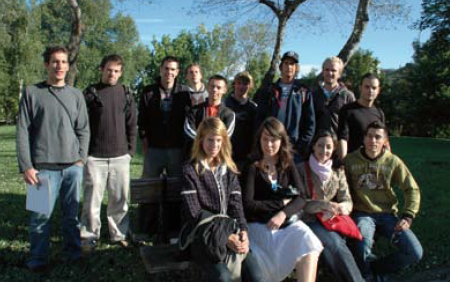
-
1992
Beatification of Saint Josemaría Escrivá de Balaguer
A group of students from the School travel to Rome for attend to attend the beatification of St. Josemaría Escrivá, Founder of the University. This year the School was also invited by the International Olympic Committee ( committee ) to participate in the Barcelona Games through three research projects on sports biomechanics in the disciplines of high jump, pole vault and fixed bar in gymnastics. For this purpose, the School sends a team of students led by Professor Javier García de Jalón.

-
1993
New Study program
Again this year, a change of Study program, the University Reform Law, was implemented. The Industrial Engineering degree program is renewed and the School offers four degrees in Higher Engineering: Industrial Engineering, Industrial Organization Engineering, Industrial Automation and Electronics Engineering and Materials Engineering. The degree program lasts five years. In addition, the LRU allows students to choose part of the courses.
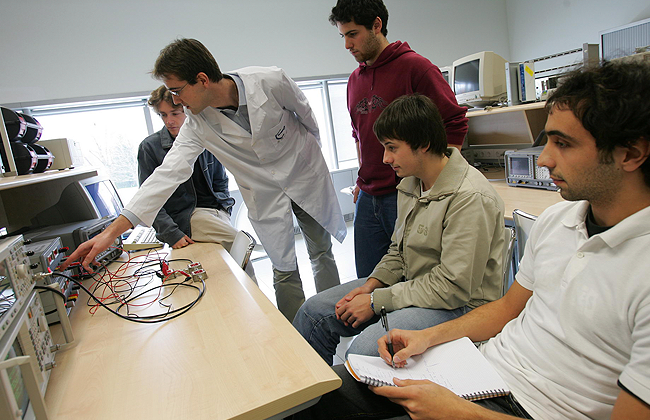
-
1995
School Employment Day
These are conference , which bring companies to the School, thus bringing potential employers closer to the new engineering graduates at Tecnun. During the conference, held in February or March, students have the opportunity to learn what the different participating companies do, what they need from future engineers, thus bringing supply and demand of engineers closer, and opening the possibility of obtaining a job, summer internships or the development of the project end of career.
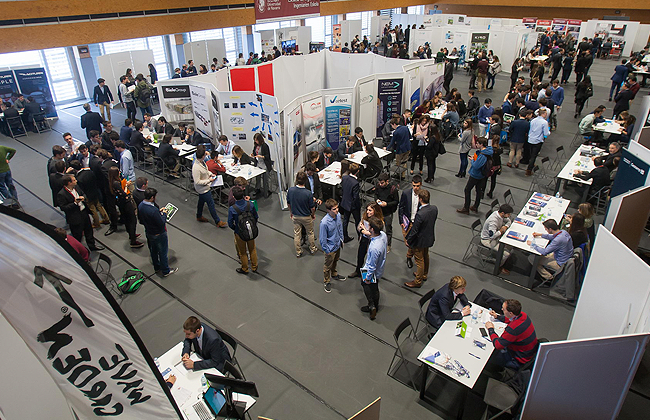
-
1995
Gold Medal
Joaquín Casellas, first director of the School, received the University's Gold Medal in 1995. This is a recognition awarded by the University to its employees for 25 years of service.
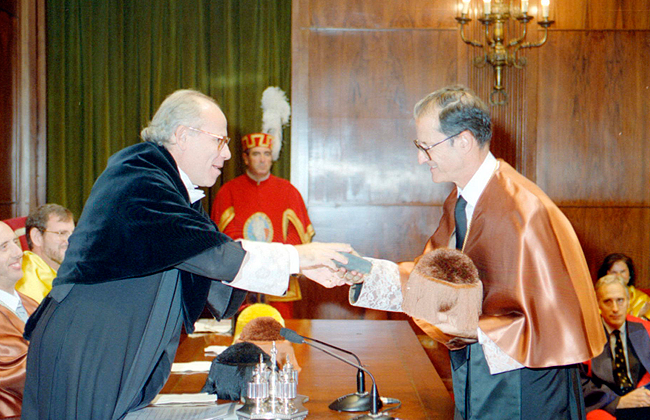
-
2000
Telecommunications
degree program Telecommunication Engineering begins to be taught at the School. In the same year, Chair of Thermal and Fluids Engineering Fundación Antonio Aranzábal-Universidad de Navarra is created.
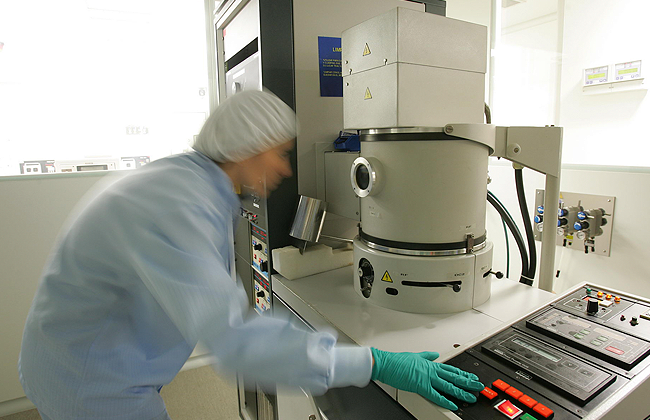
-
2002
Canonisation of Saint Josemaría Escrivá de Balaguer
The University of Navarra celebrates its fiftieth anniversary and that same year, in October, the Founder of the School, St. Josemaría Escrivá de Balaguer, is canonized at place in St. Peter's by Blessed John Paul II. In the same year, 2002, Tecnun received the accredited specialization of Quality from the Ministry of Education for its doctoral program of Industrial Engineering.
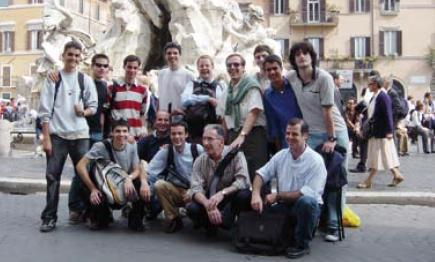
-
2003
Doctor 'honoris causa
A proposal of the School, the University has awarded three honorary doctorates, the latest being Anthony Kelly in 2003, formerPresident of the University of Surrey and founder of Churchill College, University of Oxford. Previous recipients were Christopher M. Sellars of the University of Sheffield (1989) and Manuel Elices of the Polytechnic University of Madrid (1994).
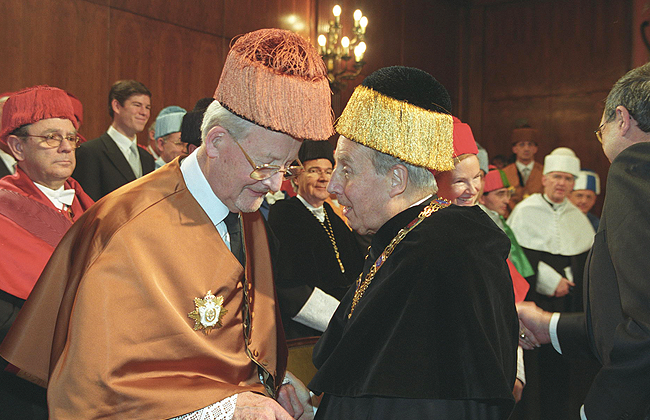
-
2006
Inauguration of Miramon
Their Royal Highnesses the Prince and Princess of Asturias inaugurate the Miramón building.
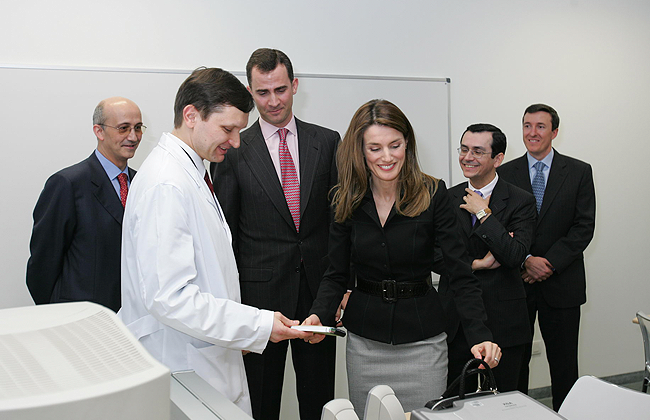
-
2009
New qualifications
The new degrees of Degree, nine, adapted to the EHEA, were implemented: Industrial Technologies Engineering, Mechanical Engineering, Electrical Engineering, Industrial Electronics Engineering, Telecommunication Systems Engineering, Communications Electronics Engineering, Industrial Organization Engineering, Industrial Engineering design and development of Products, and Biomedical Engineering.
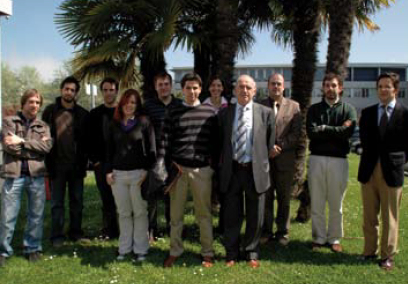
-
2009
Tecnun Motorsport
In 2009, the Tecnun Motorsport team participates for the first time in the Formula Student competition, driving its single-seater at the Silvertone and Hockenheim circuits. More than 45 students from the School participate in the project .
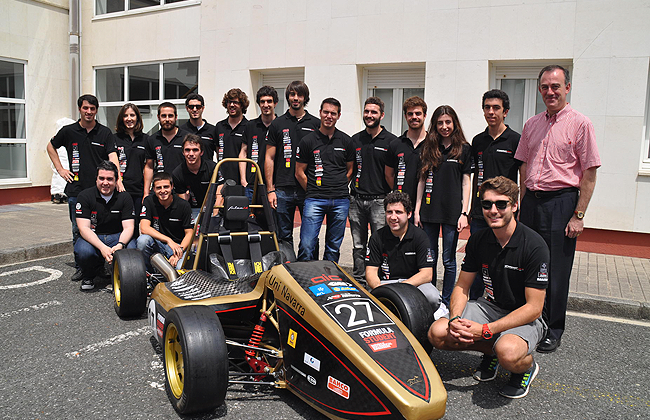
-
2011
50th anniversary
Tecnun celebrates its 50th anniversary. In its half century of history, more than 6,000 engineers and physicists have attended graduate . The events will close with the inauguration of the sculpture called "From Plane to Space", by the artist Néstor Basterretxea, which today presides over the entrance to the technological campus of San Sebastián.
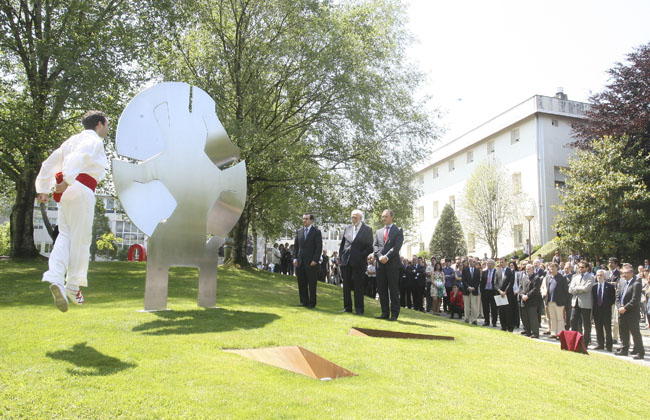
-
2012
Thesis issue 500
The engineer Leire Labaka defends the thesis issue 500 of the School. The effort researcher of Tecnun has been focused mainly on projects of applied research to the day to day of the companies, both in Gipuzkoa and globally. The first thesis defended at the School was that of engineer Juan Manuel Martinez-Apezteguía. In the photo the authors of both theses blow the celebration cake.
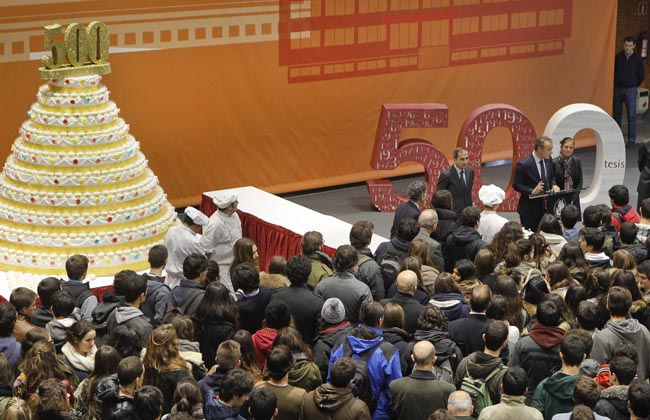
-
2013
First master's degrees
For the first time, master's degrees adapted to the EHEA were introduced: Industrial Engineering, Telecommunications Engineering, Biomedical Engineering and Production Management in the Automotive Sector. By 2020, all Degrees and master's degrees will obtain the accreditation EURACE, European Seal of International Quality in Engineering.
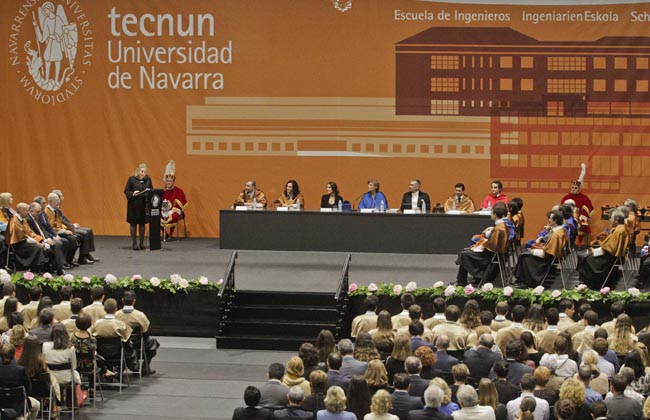
-
2017
Tantaka-Tecnun | Social Commitment
Tantaka, the Solidarity Time Bank, was launched at Tecnun at the beginning of the 2017-2018 academic year with the goal to act as an intermediary between the associations of Gipuzkoa and the campus of Donostia-San Sebastián. Since then, more than 200 people, including students, staff of the School and friends of the University, participate annually in activities of volunteer activities in areas such as care for children and adolescents, elderly, sick or disabled people.
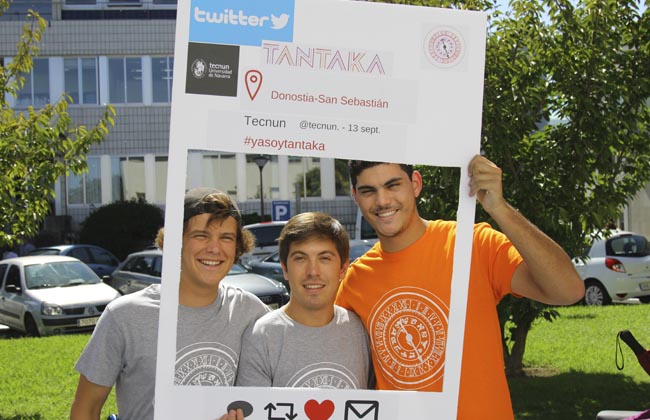
-
2018
committee advisor of Companies
In May 2018 the committee advisor of Companies was constituted. Today it is composed of more than 30 companies and institutions with which Tecnun maintains collaboration agreements to jointly review in a structured way the present and future of engineering education, so that the institutions positively influence Tecnun and thus improve the profile competence of graduates and their suitability for the labor market.
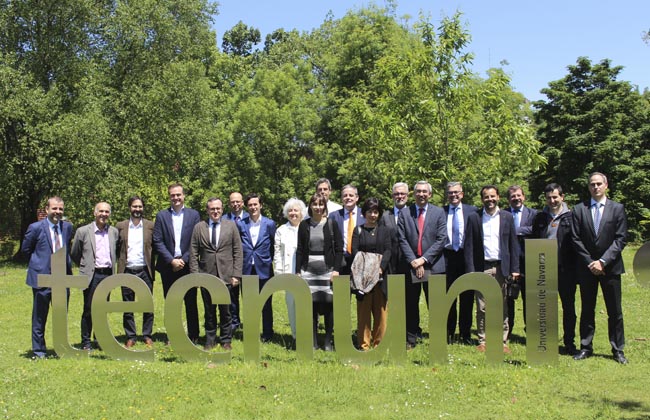
-
2019
Campus of Madrid
In September 2019 Tecnun starts teaching in Madrid. The Master in Industrial Engineering starts at the new postgraduate campus of the University of Navarra, with students coming from both the School and other Spanish universities and with a strong involvement of companies associated with the master's degree that collaborate by teaching, giving lectures or organizing visits to their facilities.
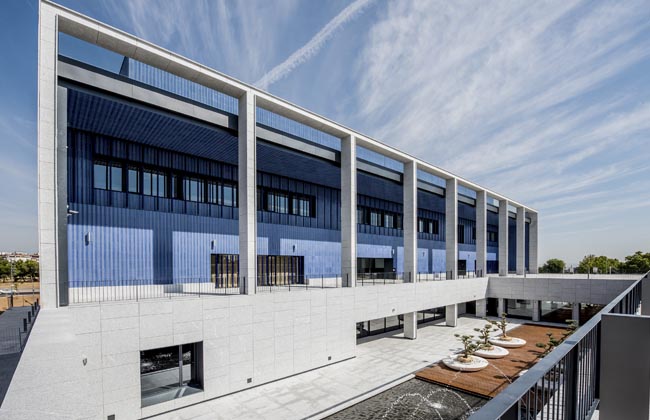
-
2020
Data Science and Artificial Intelligence Institute (DATAI)
In February 2020 the Data Science and Artificial Intelligence Institute (DATAI) will be launched. Attached to Tecnun, it is a research center, innovation and training of the University of Navarra that seeks a collaborative work of different groups and individuals of the University with the goal to achieve excellence in Data Science and Artificial Intelligence.
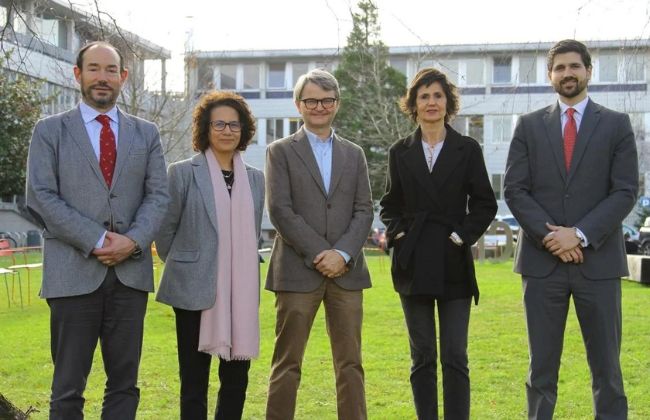
-
2021
New master's degrees | Integration in the CDIO | New itineraries
Tecnun two new official master's degrees were introduced: Master in Artificial Intelligence (Campus San Sebastián), Master in Technological Innovation (Campus Madrid). In addition, the degrees of Degree are renewed and the National Agency for Assessment of Quality and Accreditation approves new curricula for all Degrees, with common complementary itineraries of Computer Science, Data Analytics, development Sustainable and Making & Hacking. The School continues its commitment to innovation in teaching and joins the network CDIO, made up of the 120 best engineering schools worldwide.

-
2022
60th anniversary
Tecnun celebrates its 60th anniversary with a commemorative event at the Igartza Palace in Beasain. alumni reflects on the evolution of the industry in Gipuzkoa and the contribution of the university center during these six decades. The director of Tecnun, Raúl Antón, highlights the academic profile and researcher of Tecnun and its 75 research projects in the field of Artificial Intelligence-Data Science, personalized medicine, energy transition, quantum computing or sustainability. In addition, in 2022, the Gene Haas Center will be inaugurated: a pioneering research laboratory at state level, as a result of the agreement with this leading American company in machine tool.
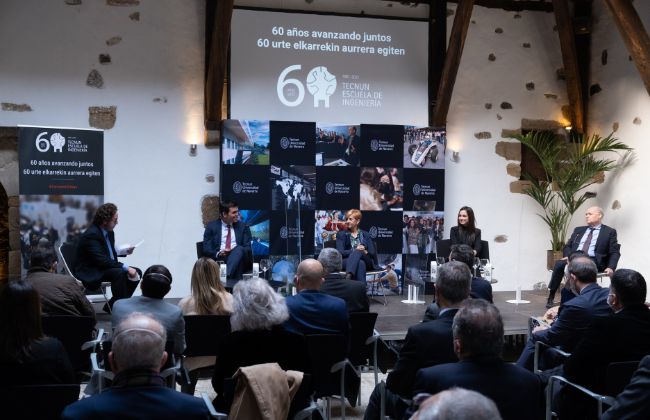
-
2023
City Science Lab Gipuzkoa
The average Lab of the Massachusetts Institute of Technology (MIT) signature an agreement with the Provincial Council of Gipuzkoa for the creation of the City Science Lab Gipuzkoa, a new innovation laboratory that will work on projects to improve mobility. The signature is a result of the academic collaboration that Tecnun, MIT and the New Mobility Center of Gipuzkoa (Mubil) have been maintaining for years. The School of Engineering of the University of Navarra has been actively participating in the projects since then and has become the headquarters, together with Mubil, of the new innovation laboratory.
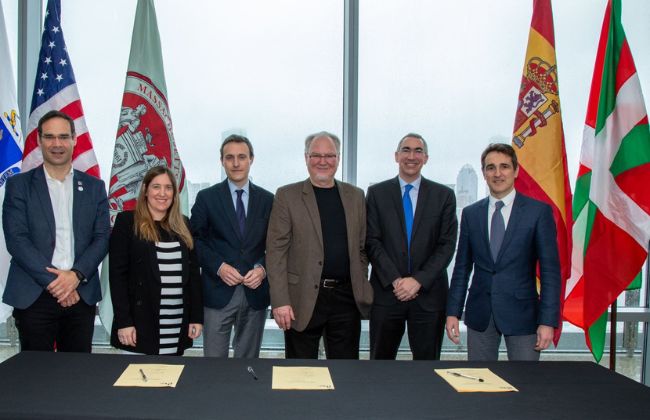
SOME OF THE SCHOOL'S PIONEERS
The School of Engineering was founded in 1961. Its first director was Joaquín Casellas. With him, other professors started the School, such as Pachi Tegerizo, Carlos Jordana, Jaime Faustmann, José Antonio Pero-Sanz, Manuel Fuentes, Manuel de la Morena, Javier Urquía, Diego Ramírez, Antonio Idarreta, José González Ibeas, Miklos Palfy and Facundo Sancho.
José Mª Bastero, who joined the School in the late 1960s, replaced Casellas as director in 1978. In 1996 he was appointed President of the University.
The chapter of pioneers closes with some professors such as Javier García de Jalón, former student of the School, disciple of the first ones.
And of course, we cannot forget Conchita Elormendi, the first administrative assistant of the School, who arrived at Tecnun when the future first headquarters on Urdaneta Street was still under construction.
Joaquín Casellas
Joaquín Casellas was the first director of the School between 1962 and 1978. In those years the Technical Research Center of Gipuzkoa (CIT) was created and the Ibaeta buildings were built.
He was a member of the National committee of Education.
In 1995 he received the Gold Medal of the University.
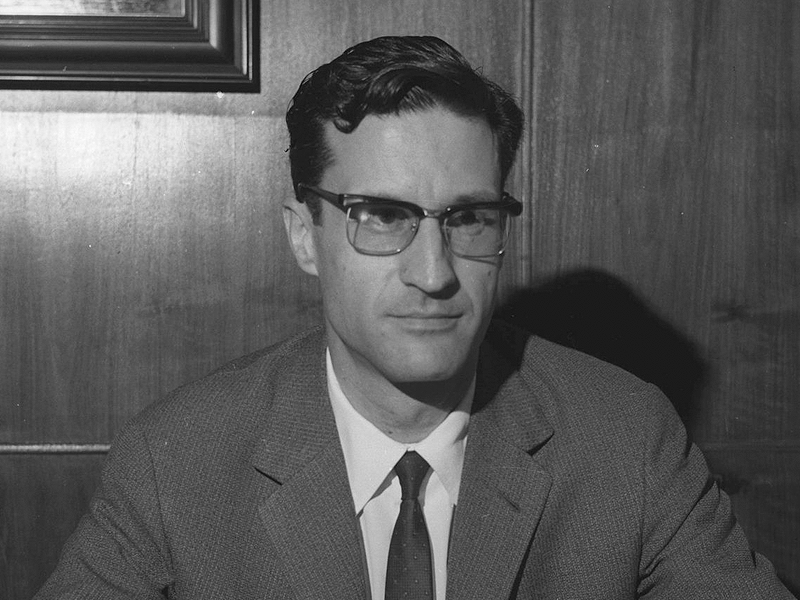
Pachi Tegerizo
Pachi Tegerizo was commissioned in June 1960 to start up the School, of which he was the first professor.
He was the first director of the Technical Research Center of Gipuzkoa (CIT) created in 1963.
He died unexpectedly on February 10, 1988.
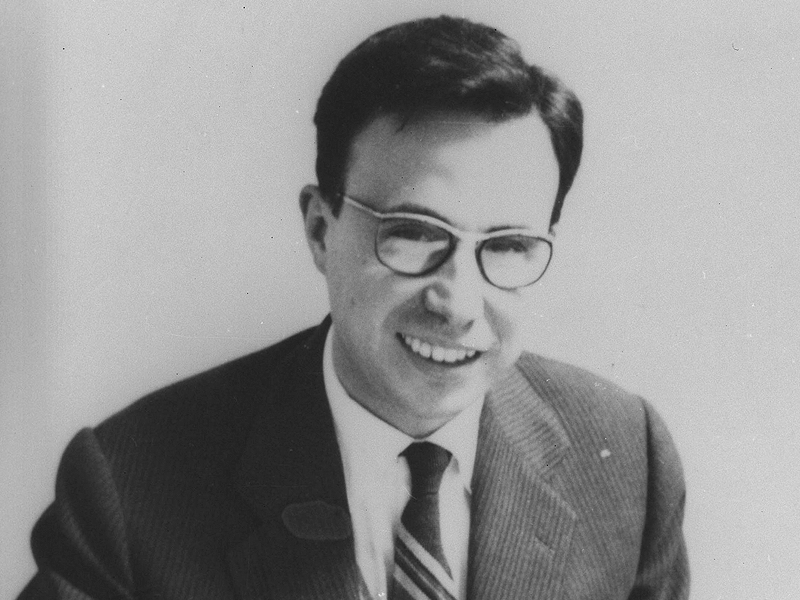
Conchita Elormendi
Conchita Elormendi, the first administrative assistant of the School, joined after Tegerizo's arrival. The future first building was still under construction, and enrollment was done in an office lent by the Provincial Council.
She worked at Tecnun until her retirement in 1995.
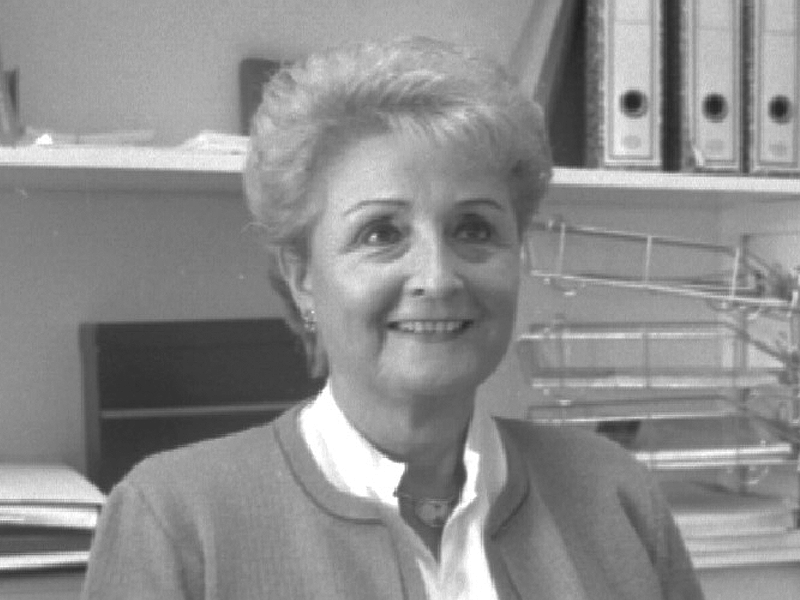
Carlos Jordana
Carlos Jordana was Full Professor of Electrical Engineering, which he taught from the beginning of the School, as well as other subjects at area. He was director of studies and Deputy Director of the School.
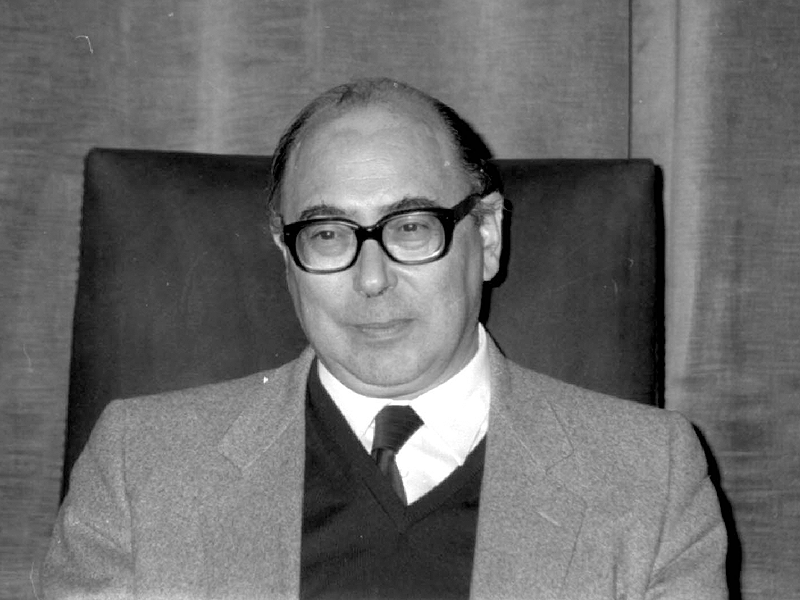
Jaime Faustmann
Jaime Faustmann was another of the first to join the School. Encouraged by Pachi Tegerizo, he trained in Materials at the University of Aachen.
In 1969 he became the first professor of the School to publish a book.
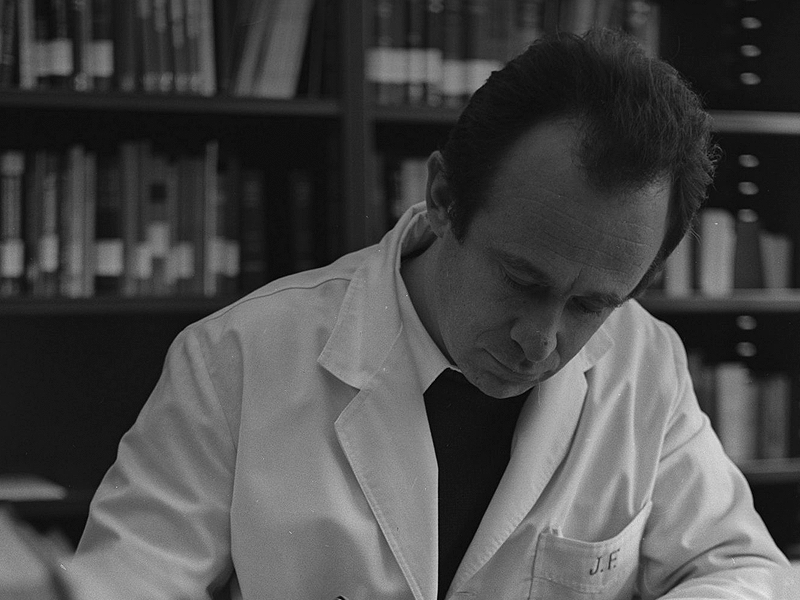
José Antonio Pero-Sanz
José Antonio Pero-Sanz, like Faustmann, traveled to train abroad, in his case at the School de Sciences de Paris-Orsay and at the Institut des Sciences et Techniques Núcleaires de Saclay.
He taught various subjects at area from Materials Engineering and director from department.
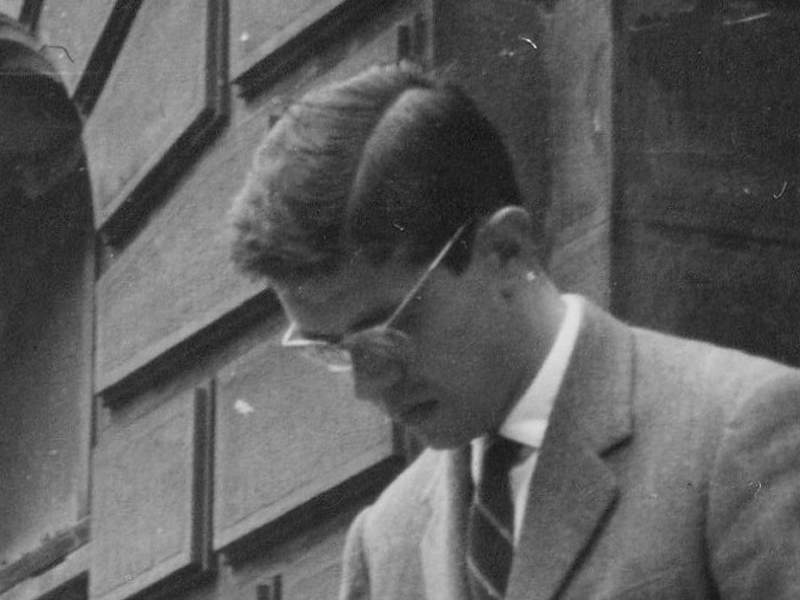
Manuel Fuentes
Manuel Fuentes, PhD in Physical Sciences from the Complutense University of Madrid and an engineer and PhD in Materials Science from the University of Sheffield, joined the School in the 1960s.
He was the first scientific director of Ceit; and its general director between 1994 and 1999.
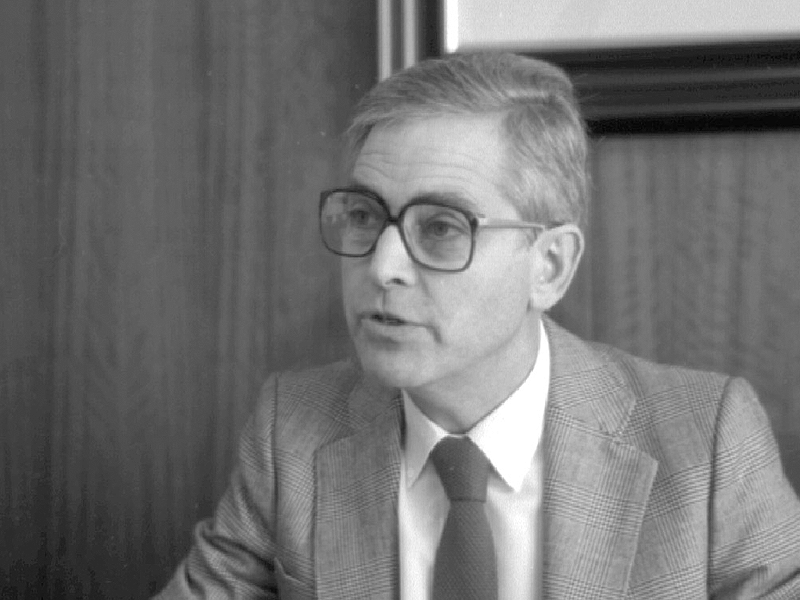
Manuel de la Morena
Manuel de la Morena, a native of Malaga, arrived at Tecnun in 1962/63, the second year of the School.
For 50 years he was professor of Chemistry and Thermodynamics.
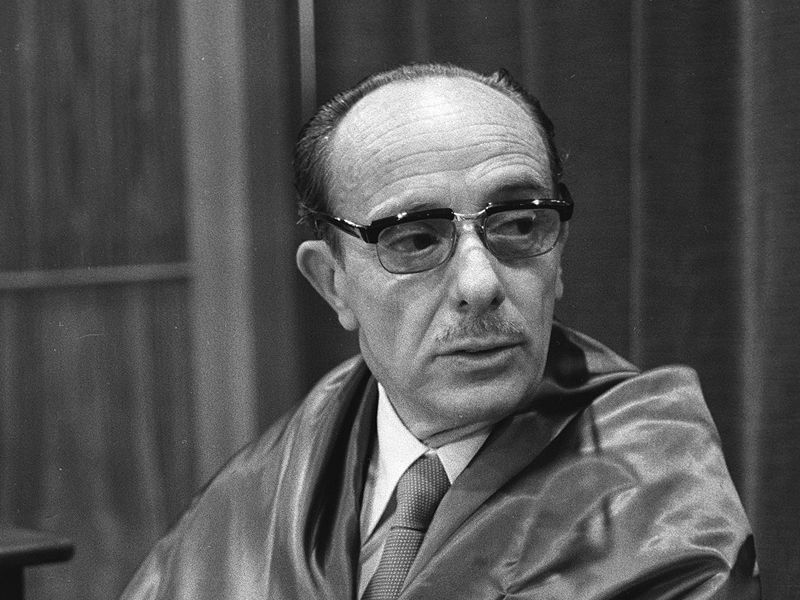
Javier Urquía
Javier Urquía, a doctor in Civil Engineering, participated from the very beginning in the launching of the School. Besides being a professor at Structures, he was a great connoisseur of the history of the Basque Country, member of the Real Sociedad Bascongada de Amigos del País.
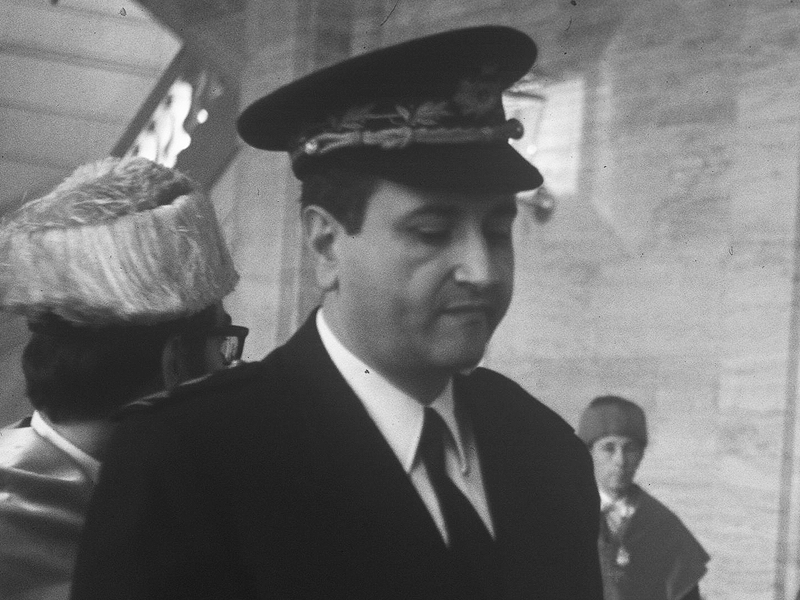
Diego Ramirez
Diego Ramírez, who joined Tecnun in 1963, was, in 1966, the first professor of the School to obtain a University degree Chair . He was at the University of Oviedo, where he stayed for a year and a half before returning to the School.
He taught Mathematics until 1997.
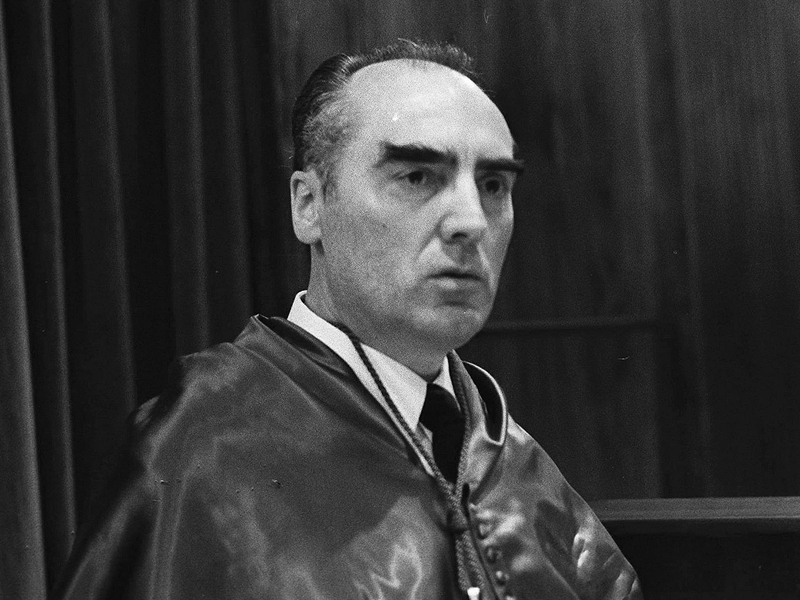
Antonio Idarreta
Antonio Idarreta, PhD in Industrial Engineering from the School of Madrid and Ingénieur Papetier from L'Instutut Polytechnique de Grenoble, started the specialization program Industrial Organization and was mentor for other professors and numerous students at Tecnun.
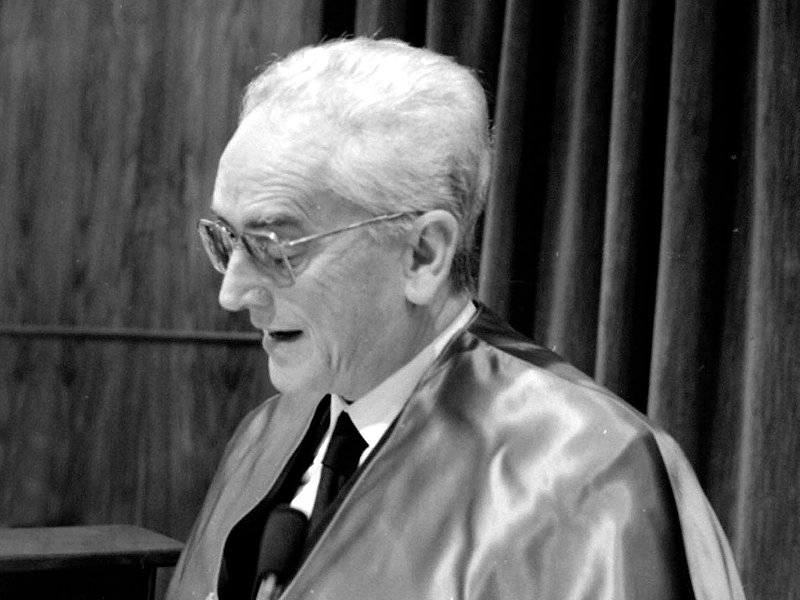
José González Ibeas
José González Ibeas joined the School in 1965 when the Physics Section was created. He was then Associate Dean of the School of Sciences, of which he was appointed Dean in 1969.
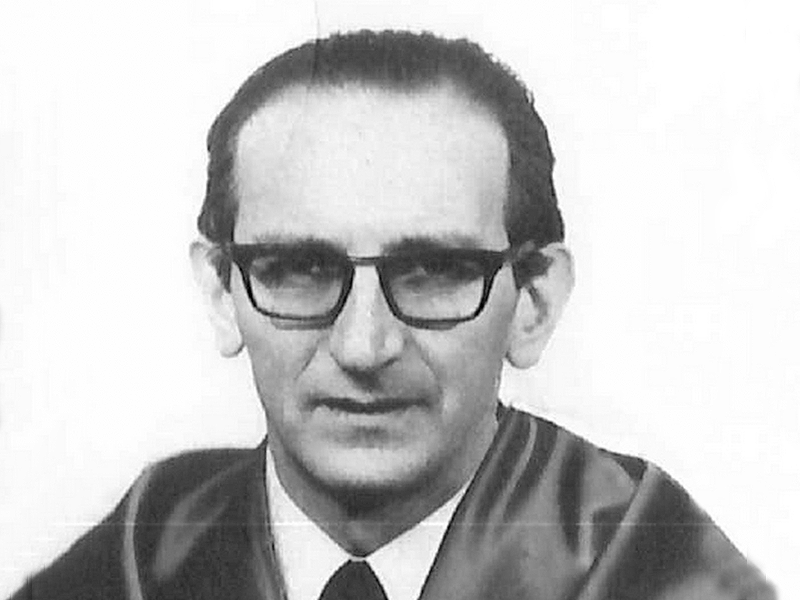
Facundo Sancho
Facundo Sancho also joined Tecnun in the early years. In 1966, he became the first professor of the School to publish a scientific article in an international journal, the prestigious 'Proceedings of the Physical Society'.
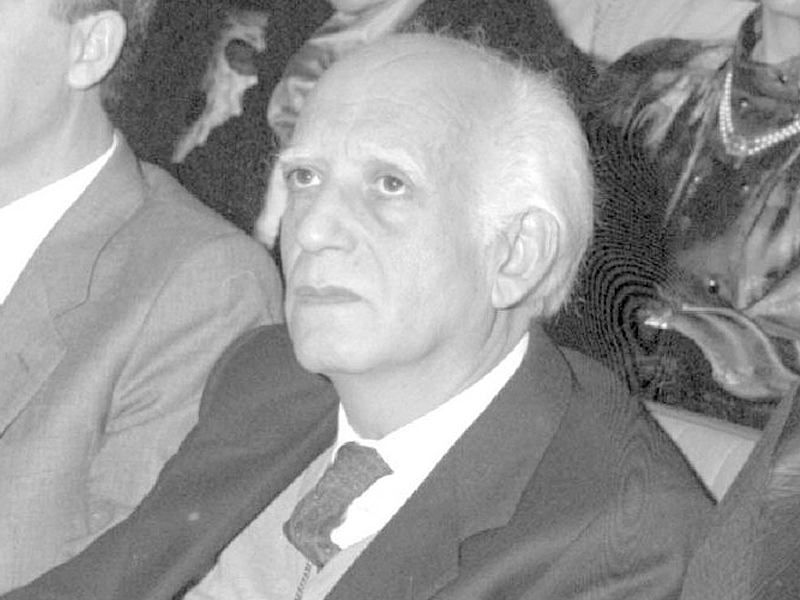
José Mª Bastero
José Mª Bastero arrived at Tecnun in 1969 as director of studies. In 1978 he replaced Joaquín Casellas at the head of the School. He was director until 1993.
He was also the first general director of Ceit, created in 1982.
In 1996 he was appointed President.
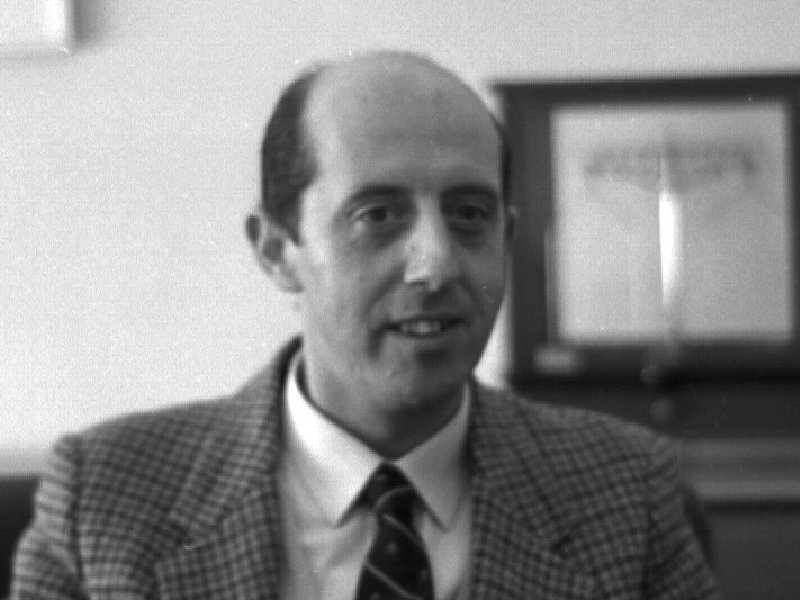
Javier García de Jalón
Professor Javier García de Jalón became in 1980 the first engineer and doctor in Engineering, both degrees from the School, to obtain a university Chair , that of Kinematics and Dynamics of Machines from the University of the Basque Country.
